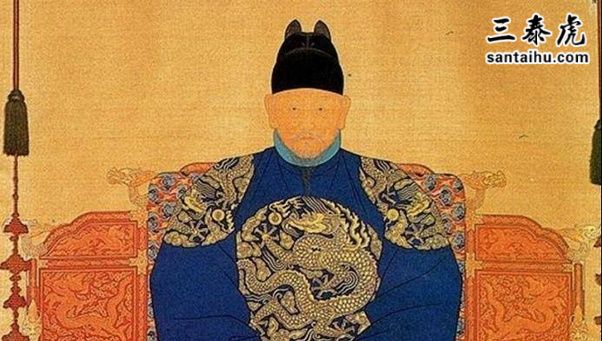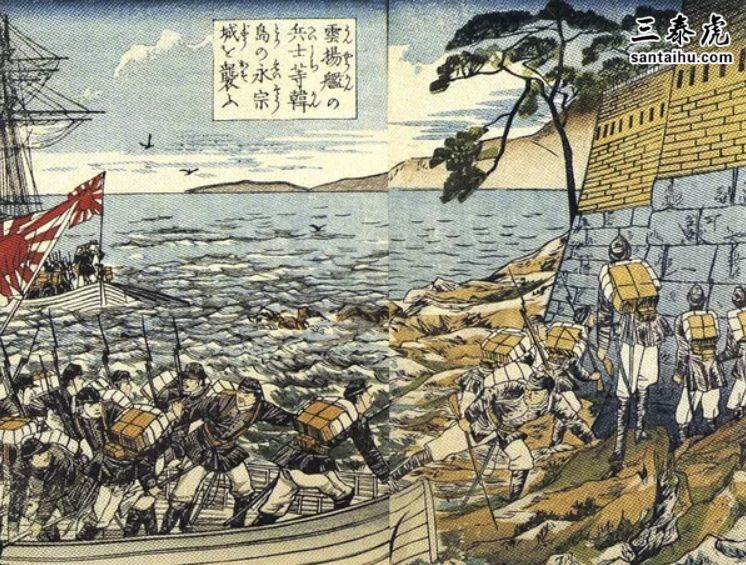Why did Korean people historically prefer Chinese imperialism over Japanese imperialism?
为什么在历史上,朝鲜人民更喜欢中国帝国主义而不是日本帝国主义?
以下是Quora网友的评价:
Will Jung
Because ‘Japanese imperialism’ did not ever EST before a century or two in history to have any sustained or significant influence over the Korean peninsula. Questions like this shows the asker does not even possess a basic knowledge or understanding of history before asking what is fundamentally flawed question that is essentially nonsensical
因为在一两个世纪之前“日本帝国主义”并不存在,对朝鲜半岛没有什么持续或重大的影响。这个问题说明提问者根本不具备基本的历史常识或对历史的理解,这个问题本身就有问题,很荒谬。
Liu Asum
Because surrendering to China means joining a larger trade network and obtaining economic support, learning new technologies, and only needing to pay a symbolic relationship of sincerity and a small amount of wealth for tribute, you can obtain huge economic benefits and even military assistance. The emperor of China would not interfere too much in Korean politics.
Throughout its 2000-year history, Korea has always believed that it has the same origin as Chinese culture.
因为臣服于中国意味着可以加入更大的贸易网络,获得经济支持,学习新的技术。朝鲜要做的只是象征性的忠诚和少量的纳贡,就可以获得巨大的经济利益,甚至军事援助。古代中国的皇帝并不会过多地干涉朝鲜的政治。
在2000多年的历史中,朝鲜一直认为自己的文化和中国文化是同源的。

Submission to Japan represented complete occupation and domination, complete plunder of wealth, deprivation of language and culture, and continuous oppression and planned massacre of the people. The emperor of Japan would try to destroy the country and its people in order to rule and assimilate the country with his own people for permanent occupation.
而向日本投降意味着全面的占领和统治,彻底的财富掠夺,语言和文化的剥夺,以及对民众的持续压迫和有计划的屠杀。日本天皇会摧毁这个国家和它的人民,用日本人统治和同化这个国家,实现永久的占领。

Imperial Japanese Navy landing force lands on Korean coast
日本帝国海军登陆部队登陆朝鲜海岸
Frank Hodge
Korean people hated both of them. Why are you asking this? Do you prefer to be ruled by other people?
这两个国家韩国人都很讨厌。你为什么会问这个问题?难道你喜欢被别人统治?
Max Than
Why did Koreans historically look down on Japan even though Japan had its own brilliant civilization and was considered equal to China?
为什么韩国人在历史上看不起日本,虽然日本也有辉煌的文明,和中国不相上下?
It basically debunks the claim that Japan was always strong. Instead, Japan was very decentralized while China, Korea, and Vietnam were more centralized. Japan relied on a feudal system while China, Korea, and Vietnam had more direct control over their domains.
这个帖子揭穿了日本在历史上一直很强大的说法。相反,日本的王权非常分散,而中国、韩国和越南则更加集中。日本依靠封建制度,而中国、朝鲜和越南对自己的领土有更直接的控制。
However, once Japan did centralized, they became extremely powerful, capable of almost conquering Korea in 1592.
Japan was also less Sinicized than Korea and Vietnam due to:
Being further away from China and causing distance decay
但日本开始实行中央后就变得非常强大了,1592年险些征服朝鲜。
日本的汉化程度也不如韩国和越南,原因在于:
他们和中国相隔遥远,导致了距离衰减
Tokugawa isolation from 1603 to 1868, which tended to remove outside influences. During the period, Japan received minimal contact with the outside world, which they deemed barbarians.
This probably led to a less centralized rule. I won’t really say mountains are the main problem because neighboring Korea had a ton of that but was still more centralized.
德川家族从1603年到1868年实行闭关锁国的政策,希望消除外界对日本的影响。在此期间,日本与外界的接触很少,他们认为日本之外都是野蛮人。
这可能导致了一个权力不够集中的统治。我认为多山地形不是主要问题,因为邻国朝鲜也有很多山,但他们的权力更加集中。
James Scroggins
Why did Koreans historically look down on Japan even though Japan had its own brilliant civilization and was considered equal to China?
The sentence should read; Korea looked down on Japan because it was believed to be not as "civilized" as China.
为什么韩国人在历史上看不起日本,虽然日本也有辉煌的文明,和中国不相上下?
这句话应该这样改:韩国看不起日本,是因为他们认为日本不如中国“文明”。
Jihyun Sohn (손지현)
What do Chinese and Koreans think about the Imperial Japan Asian Co-Prosperity Sphere?
中国人和韩国人如何看待日本帝国的亚洲共荣圈?
Historically, I think the yen block was a pretty good idea that was put in place wrong. Promoting free movement of means of production and free trade would have been a great idea, if it wasn't for the fact it was carried out through oppression and colonisation.
As for now?
从历史上看,我认为日元区是一个很不错的想法,但被用错了地方。如果没有通过压迫和殖民的手段,促进生产资料的自由流动和自由贸易本来是件好事。
现在呢?
Take out the ‘Imperial Japan’ part, replace it with equality, and I actually consider the basics of it a decent idea……if it wasn't for the large differences in economic and social structure of some East Asian countries (cough cough China). I'd also call it the *East Asia Union (EAU), after the European Union (EU).
* In this case, I'll use East Asia to apply to the three Northeast Asian countries as well as the Southeast Asian countries such as the ASEAN.
Maybe between Korea, Japan, Taiwan and the ASEAN countries - the reasons I'd take out China are:
抛开“日本帝国”的执念,代之以平等,我认为它是一个不错的想法......如果不是因为某些东亚国家(咳咳,没错,就是中国)在经济和社会结构上存在着巨大差异的话。我会仿照欧盟(EU),称其为东亚联盟(EAU)。
*我会用东亚联盟来指代东北亚三国以及东盟等东南亚国家。
也许是在韩国、日本、中国台湾和东盟国家之间—我把中国大陆排除在外的原因是:
1.The biggest reason is difference in population. Oh God. If we promoted free borders with China, imagine the people that would come, if only to travel and visit. Let's say roughly 10% of each population decides to travel to another EAU country. That would be roughly 5 million in Korea, 10 million in Japan. China? 135 million. hahahaha *wild panicked laughter*. Considering the geographic size differences of China and the rest of us, we'd explode.
2.Economic systems. I have no clue how we'd make it work with the differences between capitalism and co sm (Vietnam would apply in this case as well).
1. 最大的原因在于人口的差异。哦,上帝。如果我们开放和中国的边境,想象一下会有多少人来旅游和参观。假设每个国家大约有10%的人口决定去其他东亚联盟国家旅行。韩国大约是500万,日本是1000万,中国呢?有1.35亿。考虑到中国和我们这几个国家的国土面积差距,我们会爆炸的。
2.经济体系。我不知道我们该如何处理制度之间的不同 (越南也属于这种情况)。
3. Close economic relations would lead to close political and social relations as we see with the EU. The countries could try to use the EAU as leverage to get China to change, and I doubt the PRC would approve.
4.Lack of control over economic policies. I have no idea how China would react if we told them the EAU had to unite in economic policies and they were not allowed to regulate their exchange rates unless we did as well. I’m presuming not very happily. Not at all.
3. 密切的经济关系将导致密切的政治和社会关系,正如欧盟那样。这些国家可能会试图利用东亚联盟让中国做出改变,我不知道中国会不会同意。
4.对经济政策缺乏控制。如果我们告诉中国东亚联盟必须在经济政策上团结一致,除非我们自己也这样做,否则中国不得干涉汇率,我不知道中国会作何反应。我猜中国可能不会乐意。
Anyways, all those things would take out China out of the EAU. Now, why do I promote free movement of means of production and free trade?
总之,这些因素都会把中国从东亚联盟中剔除。那么,我为什么要提倡生产资料的自由流动和自由贸易呢?
1.It could stimulate Asia's, particularly Japan and Korea's stagnating economy. Opening barriers would mean more talented people from Southeast Asia to have the opportunity to work with us. Why should we complain? It's a perfect way to resolve our decreasing birth rate issue. Not to mention the investment opportunities that would open up - Korea's suffering ship industry would certainly cheer for one.
2.More investment into the develo Southeast Asian countries. Of course, there should be effort to elevate these countries’ economies through protectionism and developmental aid (without ties) to a certain extent before integrating them into the EAU - we wouldn't want a repeat performance of the Greek Debt crisis.
1. 这样做可以刺激亚洲—特别是日本和韩国—的停滞不前的经济。开放壁垒意味着更多来自东南亚的人才有机会与我们一起工作。我们为什么要抱怨?这是解决出生率下降问题的完美方式。更不用提由此带来的投资机会了—陷入困境的韩国航运业肯定会为此欢呼雀跃。
2.这样做可以增加对东南亚发展中国家的投资。当然,在将这些国家纳入东亚联盟之前,应该努力通过保护主义和发展援助在一定程度上提升这些国家的经济水平—我们不希望希腊债务危机再度重演。
3.We could work together to improve our human ri hts issues. Do you know how much the EU improved socially after the European Court of Human Rights (Okay, maybe this isn't EU related but it was formed because the European nations were able to collaborate politically, which the EAU would promote) was formed? And the European Union Court? It makes me excited just to think how far East Asia could go if we tried.
4.Better efforts towards peace and cooperation. Enough said.
3.我们可以共同努力改善我们的人*问题。你知道欧洲人*法院(好吧,也许这与欧盟无关,但它的成立是因为欧洲国家能够在政治上合作,东亚联盟也应努力)成立后,欧盟社会取得了多大的进步吗?一想到只要我们肯努力,东亚能走多远,我就感到非常兴奋。
4.促进和平与合作。这一点大家都说了很多。
5.Just…the benefits for individual citizens. Oh man. If I could pop over to Japan for Inari, Thailand for Pad Thai or Taiwan for Bao the way Europeans seem to casually cruise through each other's countries, I'd die happy (and obese, but that's another story altogether).
6.Academic collaboration. Imagine how much more we could develop academically if the best universities our countries worked together! Maybe we could clear up our education systems while we're at it as well.
5.给公民个人带来的好处。天啊!想象一下,如果我能像欧洲人那样,在各国之间随意巡游,去日本吃豆皮寿司,去泰国吃泰式炒面,或者去中国台湾吃肉夹馍,我会乐疯的(还会胖死,但先别管了)。
6.学术合作。想象一下,如果我们两国最好的大学一起合作,我们的学术研究将会获得多大的发展!也许我们也可以调整我们的教育系统。
7.Development. Ha, put us Asians together and we'll do our best to put the rest of the world to shame. To be honest, I'm kind of dreaming about what would happen if the entire Asia had free wifi at Korean speeds…*gulps*
8.Entertainment. Crime crackdown. Environment. Diplomatic relations. Stronger East Asian identity. I could go on and on. Maybe some world domination, although we'd make it subtle as possible bwahaha.
7.发展。哈,我们亚洲人联手团结,我们能够尽最大努力让世界其他地方相形见绌。老实说,我甚至在想,如果整个亚洲都能享受到韩国网速超快的免费wifi会是什么人间天堂。
8.娱乐、打击犯罪、环境、外交关系、更强的东亚认同感。还有很多。也许也能获得一些重要的世界影响力,不过我们会尽量自然一点,哈哈。
Unfortunately, I don't see this happening anytime soon, and I doubt it would happen as happily as I dream.
但很可惜,我认为这种景象短期内还不会实现,而且我还怀疑它能否像我梦想的那样愉快地发生。
1.International Politics would prevent the EAU from forming, as China feels encircled. God knows how South Korea's buddy up North would react as well. The US and EU would probably be happy though.
2.Ethnic nationalism and racism.
3.The current bad relations between all of the East Asian countries. The EU had the aftermath of WW2 to unite Europe. East Asia only has the lingering resentment of colonisation and atrocities performed by each country (Yes, Korean soldiers also committed horrific crimes in Vietnam).
1.国际政治局势会阻挠东亚联盟的形成,因为中国感觉被包围了。天知道韩国的兄弟朝鲜也会作何反应。不过,美国和欧盟可能会很高兴。
2.民族主义和种族主义。
3.目前东亚各国之间的关系都很糟糕。欧盟在二战后统一了欧洲。东亚各国至今对殖民统治和暴行的怨恨仍未消散(是的,韩国士兵也在越南犯下了可怕的罪行)。
4.The issues that come up with multinational companies - especially those of Korea and Japan. It's more likely that these companies would take advantage of the poorer Southeast Asian countries like Cambodia without certain barriers against them in place.
5.Differences in development.
6.And a bunch of other problems I wouldn't be able to anticipate as a mere student.
4.跨国公司,尤其是韩国和日本的跨国公司会面临的问题。这些公司更有可能利用柬埔寨等较贫穷的东南亚国家,因为这些国家没有特定的壁垒。
5.发展的差异。
6.还有很多其他的问题,我作为一个学生完全无法预料。
It's unfortunate, but the EAU will remain just an idealistic dream in my head…for now.
可惜东亚联盟目前在我的脑海中仍只是一个理想主义的梦想。
Qi Feng
Why did Koreans historically look down on Japan even though Japan had its own brilliant civilization and was considered equal to China?
为什么韩国人在历史上看不起日本,虽然日本也有辉煌的文明,和中国不相上下?
Because Japan was only partially civilized in the eyes of ancient Korean.
The most important part of chinese civilization were confucianism and the imperial exam,which was considered as what made the civilized world different from barbarian.
Japan didn't fully honor confuciansm and imperial exam. So it was not as civilized as korea and vietnam.
因为在古代朝鲜人的眼中,日本只是部分开化。
中国文明最重要的部分是儒家思想和科举考试,这是文明世界与野蛮世界的区别。
日本并没有完全遵循儒家思想和科举考试。因此,它不像朝鲜和越南那样文明。
此文由 三泰虎 编辑,未经允许不得转载!:首页 > 印度看中国 » 为什么在历史上朝鲜人民更喜欢中国帝国主义而不是日本帝国主义
 拜登:“仇外心理”阻碍了印度、中国和日本的经济增长
拜登:“仇外心理”阻碍了印度、中国和日本的经济增长 印媒:尽管股票价格高,印度股市仍将击败中国和日本的股市
印媒:尽管股票价格高,印度股市仍将击败中国和日本的股市 为什么中国没有征服古代世界,在过去5000年的大部分时间里,中国一直是全世界最先进的文化,但他们从未将国界线越过日本或印度之外的地区。
为什么中国没有征服古代世界,在过去5000年的大部分时间里,中国一直是全世界最先进的文化,但他们从未将国界线越过日本或印度之外的地区。 印媒:梅西在香港没有出场比赛,却在日本上场,中国人愤怒了
印媒:梅西在香港没有出场比赛,却在日本上场,中国人愤怒了 中国正打赢贸易战,超过德国和日本,外国网友的评论
中国正打赢贸易战,超过德国和日本,外国网友的评论 中国刚刚超过日本,成为全球最大的汽车出口国,日本有望夺回宝座吗
中国刚刚超过日本,成为全球最大的汽车出口国,日本有望夺回宝座吗 中国今年的汽车出口量超过日本,跃居世界第一,为什么媒体总是唱衰中国
中国今年的汽车出口量超过日本,跃居世界第一,为什么媒体总是唱衰中国 面对中俄威胁,英国、日本和意大利将制造下一代隐形战斗机,印网民的评论
面对中俄威胁,英国、日本和意大利将制造下一代隐形战斗机,印网民的评论